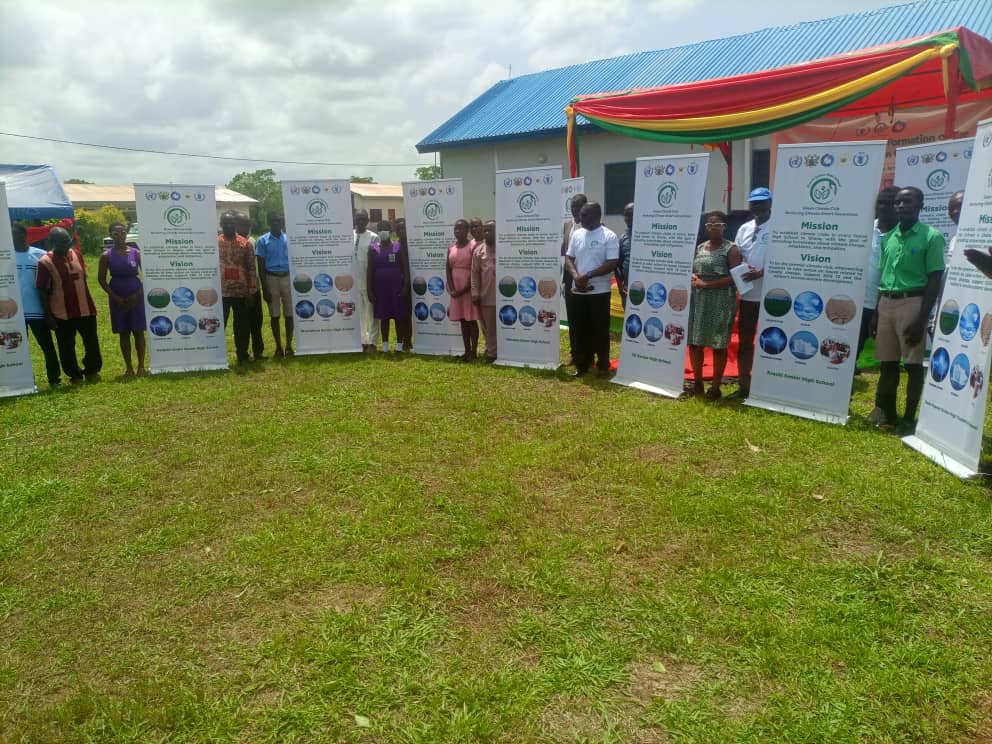By Kingsley Mamore
Dambai (O/R), May 21, GNA – The Ghana Meteorological Agency (GMET) has launched the Green Climate Clubs initiatives in some selected Senior High Schools (SHSs) to spread the knowledge on climate change adaption and mitigation in the Oti Region.
The schools include the Bueman, Dodi Papase, WoraWora, Nkwanta, Kadjebi Asato, Asukawkaw, Kpasa and Krachi senior high schools and the Oti Senior High Technical School.
The clubs will work towards mitigating the weather’s impact on agriculture, energy, and health among other economic sectors.
Mr Eric Asuman, the Acting Director General at GMET, in a speech read for on his behalf, said the initiative would enable the students to recognise and appreciate the critical need for early action in the face of Ghana’s changing climate and weather dynamics.

He said the Government was committed to addressing climate change and related issues having full cognisance of the lack of environmental and climate change education, particularly among the youth.
He urged the students and teachers to own the clubs and do all within their ability to keep them functional.
Ms Barbara Clemens, the Country Director, United Nations World Food Programme, in an address read on her behalf, said climate change and related disasters posed food security and nutrition threats.
Findings from the Fifth Assessment Report of the Intergovernmental Panel on Climate Change (IPCC) indicate that climate change could increase the risk of hunger and malnutrition by up to 20 per cent by 2050.
She said the World Food Programme (WFP) made a commitment to prevent Climate Change by developing and adopting a policy that mitigates the related shocks, vulnerabilities, and risks and enhances progress towards ending hunger and malnutrition.
Ms Clemens said the WFP considered the choice of Oti Region as very strategic and prudent because it was one of the regions currently benefiting from its interventions.
Mr Daniel Machator, the Oti Regional Minister, said the Green Climate Change Clubs would serve as a platform for dialogue, a hub for action and a catalyst for transformation.
He assured that the Regional Coordinating Council (ORCC) will engage with global environmental trends while staying true to their local values and customs.
It would also seek to empower every individual in Oti, including the young saplings of the schools, to play an active role in the green revolution.
He urged the farmers to find new ways to harmonise with nature, adopting methods that enriched the soil and protected waterways.
Mr Machator urged fishermen who navigate the rhythms of rivers and lakes to be guardians of a balanced ecosystem.
GNA